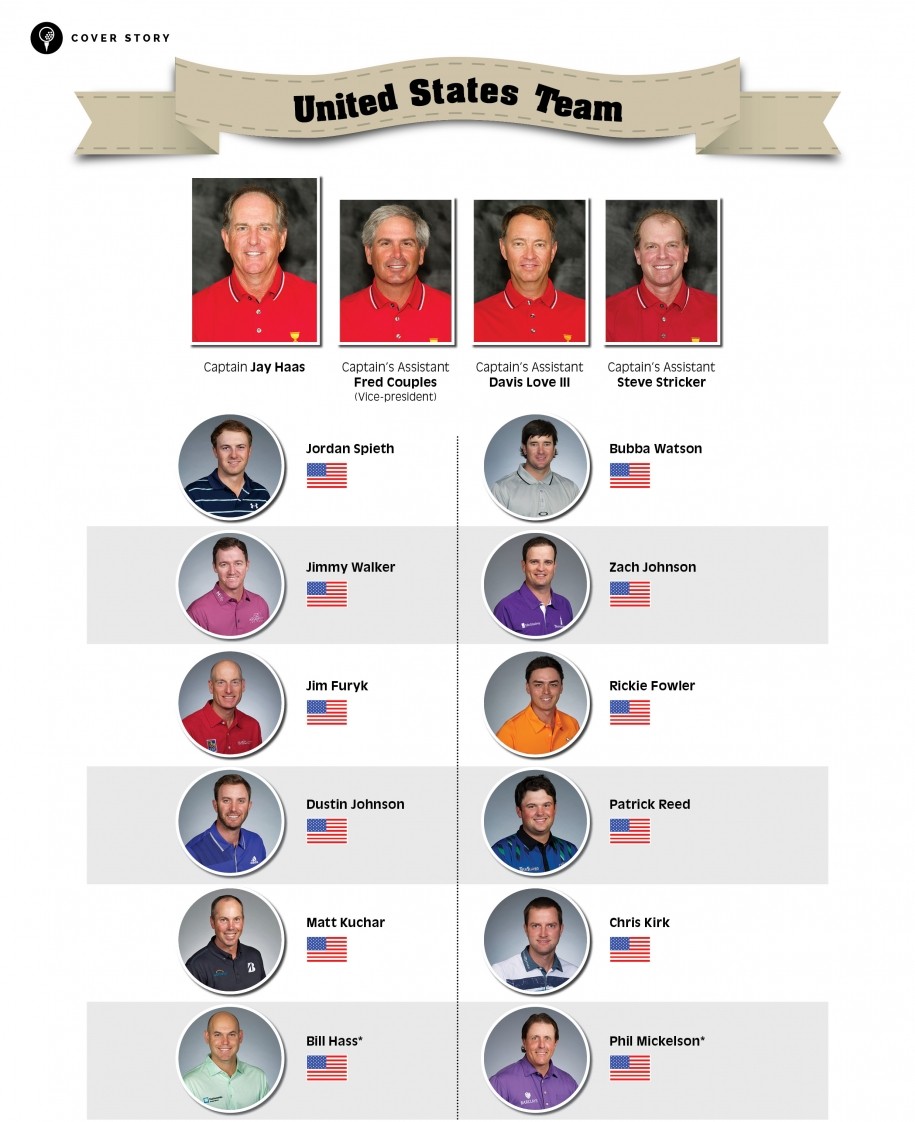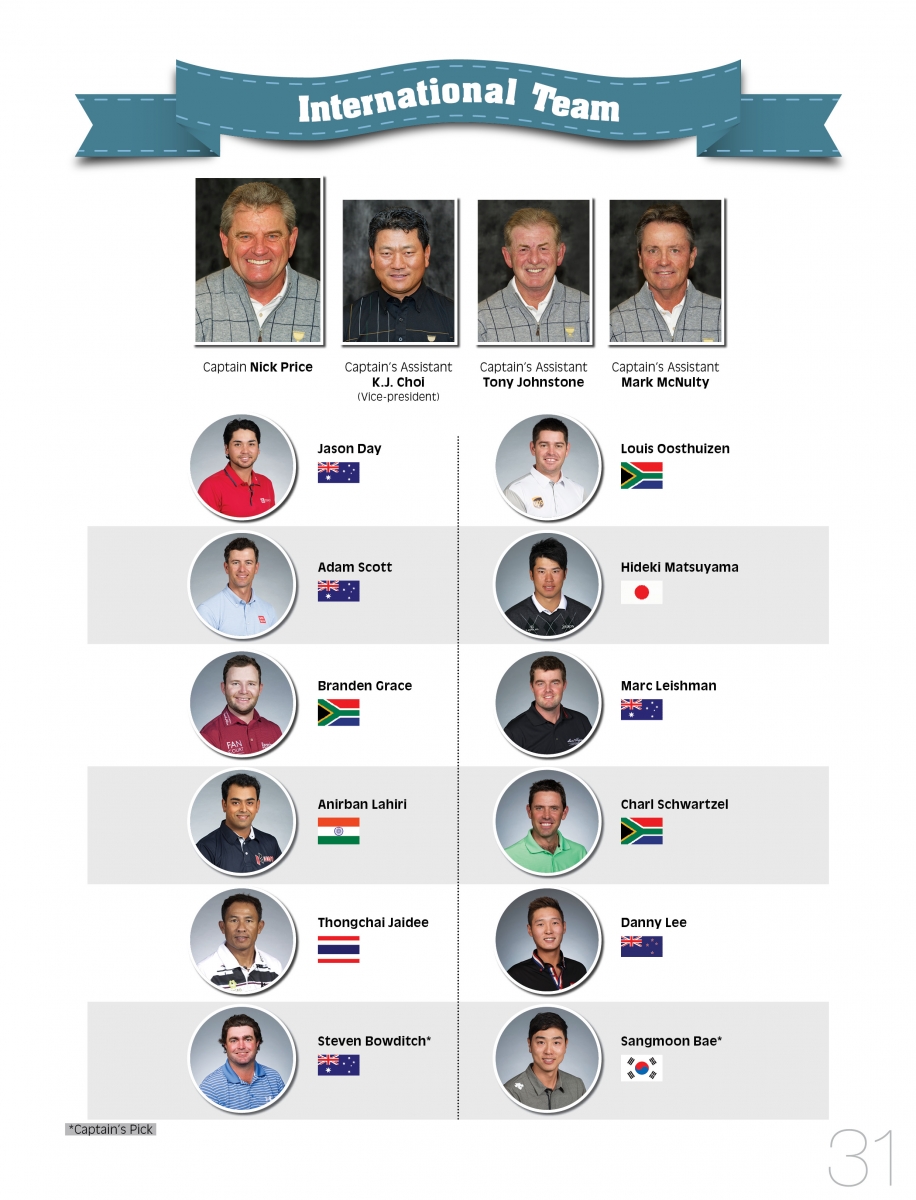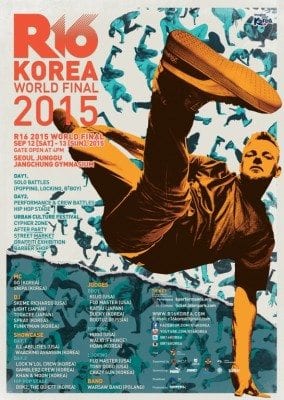We have a lot of old articles from 10 Magazine back in the day, that we hated throwing in the trash, so we’ve combined them into a long snapshot of the year. Have a look to see what was happening back then…
Korea By The Numbers: Burning the Cigarette at Both Ends
Smoking in South Korea in 2015
With the new changes in smoking laws taking effect this month, 10 Magazine takes a look at a few of the numbers surrounding smoking in South Korea.

10 Most Popular Korean Slang in 2015
New and Useful Korean Slang for 2015
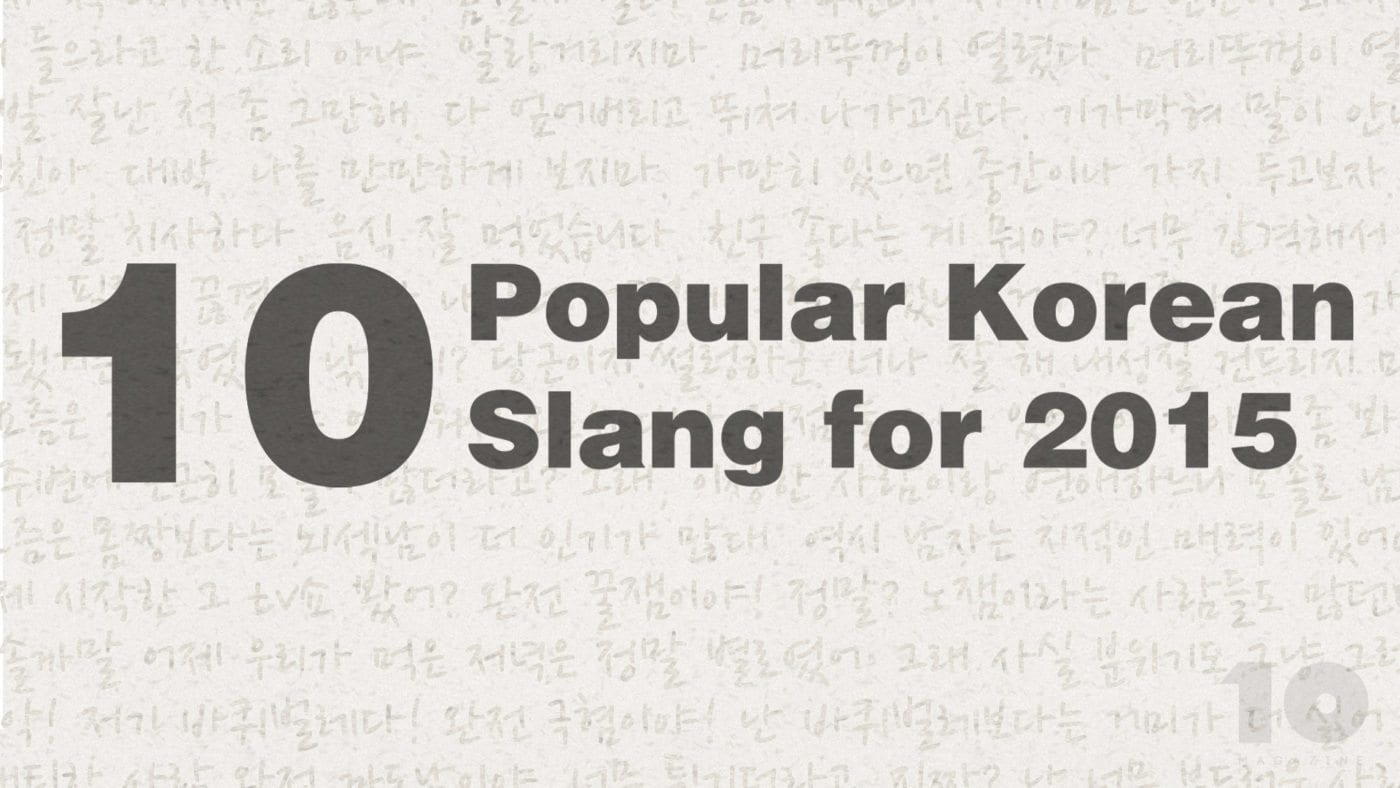
Language is something that is constantly evolving alongside culture. Things that are important to a society at the moment are often reflected in the popular colloquial language being used by younger generations. So, without further ado, let’s take a look at some of the most popular Korean slang terms being used today.
모쏠 (mo-ssol): Someone who has never had a boyfriend/girlfriend; a virgin
Short for 모태 솔로 (mo-tae-sollo) – “solo” since being in the mother’s womb
Example:
내 친구는 아직도 모쏠이야.
(Nae chingu-neun ajik-do mo-ssol-ee-ya.)
My friend is still a virgin.
뇌섹남 (noe-sek-nam): A man who is intelligent, an eloquent speaker, funny, and charming
뇌 (noe) – brain
섹 (sek) – short for 섹시 (sexy)
남 (nam) – short for 남자 (man)
Example:
요즘은 몸짱보다는 뇌섹남이 더 인기가 많대.
(Yo-jeum-eun mom-jjang bo-da-neun noe-sek-nam-ee deo in-gi-ga man-dae.)
These days, intelligent and charming guys are more popular than guys with great bodies.
꿀잼 (ggul-jaem): Something that is really fun
꿀 (ggul) – honey
잼 (jaem) – short for 재미있다 (fun, interesting)
Example:
어제 시작한 그 TV쇼 봤어? 완전 꿀잼이야!
(Eo-je shi-jak-han geu TVshyo bwasseo? Wan-jeon ggul-jaem-ee-ya!)
Did you see that TV show that started yesterday? It’s so awesome!
노잼 (no-jaem): Something that is not fun
노 (no) – Korean spelling of the English word, “no”
잼 (jaem) – short for 재미있다 (fun, interesting)
Example:
정말? 노잼이라는 사람들도 많던데?
(Jeong-mal? No-jaem-ee-ra-neun sa-ram-deul-do man-deon-de?)
Really? I heard a lot of people saying it wasn’t very good.
솔까말 (sol-kka-mal): To speak frankly, honestly
Short for 솔직히 까놓고 말하다 (sol-jik-hee kka-noh-ko mal-ha-da)
Example:
솔까말 어제 우리가 먹은 저녁은 정말 별로였어.
(Sol-kka-mal eo-je u-ri-ga meog-eun jeo-nyeok-eun jeong-mal byeol-lo-yeoss-eo.)
Honestly, dinner wasn’t very good yesterday.
극혐 (geuk-hyeom): Extreme disgust, incredibly detestable
Short for 극한의 혐오
극한 (geuk-han) – limit
혐오 (hyeom-oh) – disgust, loathing, revulsion
Example:
악! 저기 바퀴벌레다! 완전 극혐이야!
(Ak! Jeo-gi ba-kweo-beol-le-da! Wan-jeon geuk-hyeom-ee-ya!)
Blech! There’s a cockroach over there! So gross!
맛저 (mat-jeo)/맞점 (mat-jeom): To have a tasty dinner/lunch
Short for 맛있는 저녁 (referring to a delicious dinner)/맛있는 점심 (referring to a delicious lunch)
Example:
지금 식사하러 가시는 거예요? 맛점/맛저하세요~
(Ji-geum shik-sa-ha-reo ga-shi-neun geo-ye-yo? Mat-jeom/mat-jeo ha-se-yo?)
Are you going to get food now? Enjoy!
오포 세대 (oh-po se-dae): The generation who have given up on dating, marriage, having children, personal relationships, and home ownership due to the difficulties of life.
오 (oh) – five (things)
포기하다 (pogihada) – to give up
세대 (sedae) – generation
Example:
요즘은 경기가 너무 어려워서 오포세대가 점점 늘어나고 있어.
(Yo-jeum-eun gyeong-gi-ga neo-mu eo-ryeo-weo-seo o-po-se-dae-ga jeom-jeom neul-eo-na-go iss-seo.)
The economy is so bad these days that the number of people who are giving up on dating, marriage, having children, personal relationships, and home ownership is slowly increasing.
심쿵 (shim-kung): Emotional heart attack; particularly when you see something or someone beautiful or attractive
심장이 (shim-jang-ee) – the heart
쿵 (kung) – bump, thud
Example:
이 강아지 좀 봐. 완전 심쿵! 정말 귀여워!
(Ee kang-ah-ji jom bwa. Wan-jeon shim-kung! Jeong-mal gwi-yeo-weo!)
Look at this dog. It’s so cute I could die!
까도남 (kka-do-nam): An arrogant city-man; typically represented as rich, successful businessmen
Short for 까칠한 도시 남자 (kka-chil-han do-shi nam-ja)
까칠하다 – harsh, haggard
도시 – city
남자 – man
Example:
어제 소개팅한 사람 완전 까도남이야. 너무 튕기더라고.
(Eo-je so-gae-ting-han sa-ram wan-jeon kka-do-nam-ee-ya. Neo-mu twing-ki-deo-ra-go.)
The guy I went on a blind date with yesterday was such an arrogant city-guy. I don’t think he was interested.
10 Tech Predictions for 2015
Words by Stafford Lumsden
Last month we had a look back at our predictions for 2014, and it is with some confidence that we look forward to the new year and gaze into our (USB-powered) crystal balls and try to predict what tech-gadgets and trends will be prevalent in 2015.
1. Rise of the (tiny) machines

2015 will see nanotechnology make the news. There will be a breakthrough in making these tiny, computerized machines viable, especially in the fields of medicine and biology, and it won’t be long until we take a pill filled with nanobots ready to repair our body at the cellular level rather than one filled with chemicals.
2. iPhone 7 and iOS9
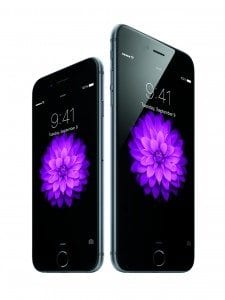
What would another year be without another iPhone (and iPad) from our favourite fruit-themed technology company? Look for slightly larger screens, slightly better cameras and only slightly better software…
Pictured: iPhone 6
3. Galaxy S6

If Apple is the Yin then hometown favourite, Samsung, is the Yang, but will Sammy’s 2015 handsets be all Google all the time? Watch out in 2015 for a flagship device from Samsung running it’s Tizen mobile operating system, rather than Google’s Android.
Pictured: Samsung Galaxy S5
4. Android M&M?
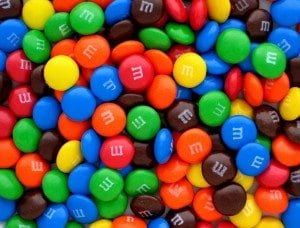
There won’t be Android 6.0 in 2015, rather just a point upgrade, but it will get another fun, candy based codename. My bet is “M&M.” Look for another marketing tie-in with the delicious candy that melts in your hand, not in your mouth.
5. Bigger isn’t necessarily better

Phones in 2015 will get marginally smaller. We have peaked at Sony’s 6-inch Xperia Z Ultra and Google’s Nexus 6. Manufacturers will take a step back, and with sales of the iPhone 6+ better than forecast, expect 5.5 inches to be the new normal. (Of course Samsung has been doing it for years!)
6. More seamless handoffs between devices

With the release of Yosemite, Apple’s desktop operating system, you can now open a webpage on your phone or start editing a document on your tablet, get home, and start where you left off on your desktop machine. When your phone rings you can answer it on the desktop too. It’s not perfect, but in 2015 we’ll see more of this, as well as the ability to handoff tasks between different devices running different operating systems.
7. VR (Virtual Reality)

Oculus Rift, now owned by Facebook, is leading the charge in VR. Look for consumer friendly iterations of their virtual reality goggles for gaming and movie-watching in 2015. Sony and Samsung are also getting in on the game, while Google out-did all three mid-2014 with a virtual reality headset for your phone made of cardboard and retailing for about $10.
8. Wearables

Watches, fitness trackers and other bodily dongles will still be the rage in 2015 with new products available from Fitbit and new Android watches available from all the major players. The standout of 2015 will be the release of the Apple Watch in various configurations and price points (and yes, one is made of rose-coloured gold).
9. Google Glass

If there is one thing on this list I desperately hope comes true, it’s that Google finally makes its face-bound wearable consumer friendly and widely available for a reasonable price. (And that those of us who jumped on the bandwagon early and paid through the nose for the privilege get some sort of reward).
10. Robots
Shot courtesy of Fellow Robots
If there is a second thing on this list I am vaguely interested in coming true, it is the further mainstreaming of robots. I for one welcome our new robotic overlords to push my cart at Emart, pick up my laundry, and not take over the world.
Busan International Film Festival 2015
A Bonanza Of Brilliant Films In Busan
Yes, it’s that time of year when the film fans flock down south for Korea’s biggest cinematic extravaganza – BIFF – the Busan International Film Festival. Celebrating its 20th birthday this year, the festival promises a whole host of incredible movies and we’ve picked out the best of the best for you. Look below for highlights from some of the biggest and best categories of BIFF and leave your recommendations in the comments.
Open Cinema
Starting tonight you’ve got a chance to see eight amazing movies on the festival’s big outdoor screen, the BIFF Theatre. Every night at 8.00 the 4,000 seat venue will be home to some of the best cinema from around the world. Tonight it’s the turn of My Neighbour Totoro, the classic Hayao Miyazaki animation. Plus over the next week you’ll have a chance to see Piero Messina’s The Wait (Juliette Binoche stars in a tale of family tragedy), Raman Hui’s Monster Hunt (3D action and animation from the co-director of the Shrek series), Frankie Chen’s Our Times (a teenage romcom getting its international premiere at BIFF) and Kwon Oh-kwang’s Collective Invention (A bonkers tale about a perverted fish-man). Something to please all tastes!
Korean Cinema Today
With 35 films including 25 world premieres, the Korean Cinema Today section promises some great watches for those who prefer Hallyu over Hollywood. Highlights include O Muel’s Eyelids (A strange and soul searching film from the director of the award winning Jiseul), Hong Sang-soo’s Right Now, Wrong Then (Winner of the Golden Leopard at this year’s Locarno International Film Festival) and Yi Ji-sang’s The Battle Of Gwangju (A world premiere from a prolific indie director making his commercial debut). Plus there are screenings of Ryoo Seung-wan’s Veteran, Shin Su-won’s Madonna and Choi Dong-hoon’s Assassination.
Hidden Masterpieces of the 1960s
As always BIFF brings some classic Korean films back into the public eye and this year the focus is on “hidden masterpieces” – films from the 1960s that have been overlooked and deserve some attention. The eight selected films range from horror to animation to high drama and are sure to please devoted fans of classic cinema.
World Cinema
BIFF has brought together 50 incredible international releases to include in its World Cinema line up and there are some startlingly good films on offer. We will be treated to the world premiere of Charles-Oliver Michaud’s Anna (A Canadian drama about human trafficking), Miguel Gomes’ Arabian Nights (An epic three volume exploration of contemporary Portugal using the One Thousand And One Nights as its foundation), Michel Franco’s Chronic (Starring Tim Roth, this Mexican production won the Best Screenplay Award at Cannes this year), Alejandro Amenabar’s Regression (Emma Watson and Ethan Hawke star in this supernatural thriller from the maker of Open Your Eyes) and Jocelyn Moorhouse’s The Dressmaker (An Australian tale of murder, love, alienation and sewing starring Kate Winslet and Liam Hemsworth).
Wide Angle
Short film and documentary fans will be pleased with the large selection on offer in the Wide Angle section. Though it’s in the Documentary Showcase sub-section that some real gems lie. You can catch showings of Alexandr Sokurov’s Francofonia (Fresh from the Venice International Film Festival, the man who made Russian Ark gives us his take on the Louvre), as well as screenings of Umesh Aggarwal’s Jai Ho (an in-depth look at India’s leading composer, A. R. Rahman – best known for his work on Slumdog Millionaire).
An Astonishing Abundance
There’s much more to see at the Busan International Film Festival and thanks to their excellent website you can find all the info you need in both Korean and English. Films are showing at the Busan Cinema Center, CGV Centum City, Lotte Cinema Centum City, Megabox Haeundae, Sohyang Theater Centum City and Megabox Busan Theater until October 10th and this year’s festival promises to be even better than the last. So, pack your bags, head down to Busan and enjoy some of the best cinema on offer!
Presidents Cup 2015 at New Songdo City
Presidents Cup 2015 Marks Tournament’s First Asia Appearance
Whether a scratch player, armchair duffer, or one who puts golf spectating up there with watching paint dry, you really shouldn’t miss out on a chance to see two dozen of the world’s greatest active golfers battle it out during the Presidents Cup in New Songdo City over October 8th-11th.
Readers might be more familiar with the Ryder Cup, which pits US golfers against Europeans once every two years, while the Presidents Cup features Americans vs players from the rest of the world. As for the latter, US teams have put up a record of 8-1-1 since the first installment in 1994, with the only tie coming in 2003 after captains Gary Player and Jack Nicklaus agreed to call the match amid fading daylight. The international team is not the odds-on favorite this time around either, but it will feature some of the world’s top-ranked players, including Jason Day, former Masters champions Adam Scott and Charl Schwartzel, and 2010 British Open winner Louis Oosthuizen (who was also runner-up in two of this year’s majors).
U.S. Boasts Star-Studded Lineup
On September 8, this year’s captains Jay Haas and Nick Price selected two players each who fell outside of the top-10 world rankings for US and non-European international players to round out their respective 12-man rosters. The ten automatic qualifiers for the US, in descending order, are Jordan Spieth, Bubba Watson, Jimmy Walker, Zach Johnson, Jim Furyk, Rickie Fowler, Dustin Johnson, Patrick Reed, Matt Kuchar, and Chris Kirk. While some immediately bemoaned Haas for making one of the captain’s picks his own son Bill, despite him ranking 11th amongst American golfers, there was a general mixed reaction for his other choice, Phil Mickelson. Sure, ‘Lefty’ boasts unrivalled experience, with 20-consecutive international team appearances for the US, but some note his 30th place points standings and uneven play of late, which includes just three top-ten finishes this season, although one of those was runner-up at the Master’s. Regardless, Phil “The Thrill” is bound to attract some who might have otherwise been unwilling to check out the tournament being held at the private Jack Nicklaus Golf Club Korea. Mickelson, during a recent interview on the Golf Channel’s Morning Drive program, said that he, “can’t wait to go to Korea,” and that such international tournaments were among “the most special events of the year”. He went on to say, “The last couple of months, I’ve worked really hard on getting my swing plane back on plane, and I’m starting to hit golf shots that I haven’t hit in a couple of years.” Trivia freaks can also note that Mickelson has replaced Tiger Woods by being the all-time lowest ranked captain’s pick, as Woods was 29th in points when picked by Freddy Couples for the 2011 competition. Still, Tiger famously made the winning putt for the Americans that time around.
Two Korean-born Players on International Side
As for the international team, numbers one to nine at the time of placement were Jason Day, Louis Oostuizen, Adam Scott, Hideki Matsuyama, Branden Grace, Marc Leishman, Anirban Lahiri, Charl Schwartzel, and Thongchai Jaidee. Captain Price lucked out as Korean-born New Zealander Danny Lee took the number-ten spot — with his final putt at the Deutsche Bank Championship on September 7th — which meant opting for Sang-moon Bae as one of his captain’s picks should go down better with those who care about such things. His other pick is Australian Steven Bowditch. While Bae was denied a request to delay his mandatory military service in July, apparently by not spending enough time off home soil last year, Price said he was confident Korean authorities would delay conscripting him until after the tournament. The 29-year old has said that he looks forward to reporting for military duty following the competition, and one could also speculate on whether or not he will be called up to represent South Korea during next year’s Summer Olympics in Rio, which sees golf return as a medal sport for the first time since 1904.
The Course
The Jack Nicklaus Golf Club Korea opened for play in 2010, with the course being one of several centerpieces for the built-from-scratch Songdo International Business District (IBD) area, which emerged off the coast of Incheon on reclaimed land. Nicklaus personally oversaw construction of the course, visiting Korea numerous times during the undertaking, and describes the place on his website as, “presenting a challenge to even the most talented golfers”, which should make it a fitting test for this contest.
A par 72 spanning 7,412 yards from the back tees, Jack Nicklaus Golf Club features plenty of bunkers and water hazards, while a steady wind blows off the West Sea, but it doesn’t have much in the form of steepness typical to local courses, most of which are carved into mountain sides. The club’s previous events include several local tournaments on the Korean men’s and women’s tours along with the Posco E&C Songdo Championship in 2010, which was the first Champions Tour event ever held in Asia.
Attendees should note that as a PGA-sponsored event, the Presidents Cup will have stricter rules than local tournaments. For example, all patrons, sponsors, volunteers, media, and vendors attending or working are subject to screening. The bag policy is also quite strict and there will be no “check” facility, so restricted items will either have to be disposed or taken off the premises.
The Clubhouse
Designed by renowned Californian architect Mehrdad Yazdani, the 17,716 sqm Jack Nicklaus Golf Clubhouse features conference, dining, and wine rooms along with a lounge. There is also a full-service fitness center that boasts an indoor swimming pool along with separate bathhouse style locker rooms. Visitors can find the usual golf items available in the pro shop, but plenty of Presidents Cup souvenirs will be also be on sale in temporary facilities during the event week.
The Competition
On Monday, October 5th, the course will be closed to the public, and then open on the 6th and 7th for team practices, with that Wednesday also featuring the tournament’s opening ceremony. As honorary president of the cup, one might anticipate Park Geun-hye’s attendance. Thursday the 8th marks the official start of competition, with the day consisting of six four-ball matches, which are two-on-two contests, with the lowest score counting for each twosome’s lowest per-hole total. Friday’s contest will comprise six foursome, or alternate shot, matches, which also consist of two-on-two contests, but with each pair alternately hitting the same ball. Saturday mixes things up a bit, with five four-ball matches followed by five foursome matches. Fans will hope for the victor to remain undecided until late on Sunday, which is typical for these international contests, with the day consisting of 12 one-on-one rounds—the types of match play competitions that feature in co-sanctioned World Golf Championship tournaments (WGCs) like the Cadillac Championship and Bridgestone Invitational.
Tickets
Interpark is the exclusive seller of tickets for the Presidents Cup, with their website curiously having a flyer with Tiger Woods on the cover, which seems to be the male golf equivalent of “sex sells” since you’re about as likely to see Woods at the tournament as Jong-un Kim. Meanwhile, KJ Choi, pronounced “Chey”, also features on the ticket seller’s site, and even though he will be in attendance, it will be as vice-captain, not as a player.
These international competitions are rare in the stultified air of stuffy clubhouses due to actively encouraging noisy crowds, partisanship, nationalism, and chants of USA! USA! USA! Hopefully locals will counter the latter by busting out some hearty cheers of “Dae-Han-Min-Gook” or “Pilsung-Koh-Ree-Ah”. If you aren’t familiar with the latter two, just search for videos of Korean fans during World Cup 2002.
Getting there
Jack Nicklaus Golf Club is within walking distance of the Central Park and University of Incheon subway stations on the light blue Incheon Line #1, which can be reached by transferring from Seoul lines #1 (at Bupyeong-gu Office) and #7 (Bupyeong) . The yellow Suin Line also intersects at Woninjae, while the Airport Express Train (AREX) meets the northern terminus of Incheon Line #1 at Gyeyang, but if coming from Incheon International Airport, it’s much quicker to catch a bus or taxi and take the 110 highway over the Incheon Bridge directly into Songdo New City.
Sidebar #1: Spotlight on Danny Lee
Danny Lee was born in Incheon in 1990, moved to New Zealand at eight, and became a naturalized citizen of that nation in 2008, which is the same year he broke Tiger Woods’ record by six months with a victory at the US Amateur aged 18 years and one month. The next year, Lee won the Johnnie Walker Classic in Australia, and with the tournament co-sanctioned by the European, Asian, and Australasian tours, he became the youngest-ever European Tour winner and second-ever amateur to do so.
Lee’s performance see-sawed over the next several years, and after failing to gain a PGA Tour card, most of his appearances were on the European Tour and select events throughout Asia. Victory at the 2011 WNB Golf Classic in Texas finally secured his PGA card for the following season, but he was unable to retain it. After spending the 2013 season on the web.com tour, however, his overall 15th place finish was enough to regain PGA Tour status.
In 2014, Lee trundled through the season—nb, the PGA switched from a calendar-based to “wraparound” schedule in late 2013—but attempts to simplify his swing and adoption of a claw putting grip helped him to a runner-up finish at the Puerto Rico Open in March. This year’s season could be called a breakout for the 25 year-old, which included three top-ten finishes before his maiden PGA Tour victory at the Greenbrier Classic in July, with a couple of more top-ten placements coming since, all of which helped secure his tenth place spot for non-European internationals.
Sidebar #2: Spotlight on Sang-moon Bae
Born in Daegu in 1986, Sang-moon Bae took up the sport at the urging of his golf-playing parents when he was 11. Two years after turning pro, his first title came at the Korean Tour’s 2006 Emerson Pacific Group Open, with three more victories coming on home soil over 2007-2009. Bae led the Japan Tour’s money list in 2011, thanks to three victories within a two-month span, finishing that year tied for 11th at the PGA Tour Qualifying Tournament, which earned him a tour card for the following season.
After making eight-straight cuts, Bae grabbed his first top-ten finish at the 2012 WGC-Accenture Match Play Championship, which included notable victories over Rory McIlroy and Ian Poulter. The next year saw his first PGA title at the HP Byron Nelson Championship, which made him the fourth South Korean born player to win on the tour after KJ Choi, YE Yang, and Kevin Na, as Anthony Kim was born in California. A solid performance this season had Bae close to automatic qualification of the Presidents Cup, while most pundits see his play of late exceeding that of international players who rank higher on the two-year rolling system.
As the only Korean citizen competing in this year’s Presidents Cup, expect large galleries to follow Bae around the Jack Nicklaus Golf Club. Despite just missing out on automatic qualification, he was an easy captain’s pick for Nick Price, who noted the importance of having someone on the team that Korean fans and media could root for. Price also cited Bae’s two victories on the course, which makes him the only participant to have won at the facility.
Seoul Fashion Week 2015
The Hera Seoul Fashion Week, hosted by the Seoul Metropolitan Government and organized by the Seoul Design Foundation, is a biannual event held in March and October. With the goal of becoming one of the most prominent fashion weeks in the world, Seoul Fashion Week has been garnering attention for its eye-catching designs.
Its showcases are divided into two main sections — Seoul Collection and Generation Next. First created in 2000, Seoul Collection presents the work of Korea’s top designers, making it the most distinguished collection in the domestic fashion industry. Generation Next is devoted to fostering relatively new, up-and-coming independent brands and designers.
Although many attend Seoul Fashion Week to see the newest designs in high fashion, the event is also great for people-watching. Attendees are known to sport colorful, chic, arresting, and even downright kooky ensembles. So, who knows? Your next Spring/Summer fashion inspiration might not come from the runway. Visit seoulfashionweek.org to see runway schedule.
Dongdaemun Design Plaza. October 16 – 21. 11 am – 8:30 pm. Free. seoulfashionweek.org, 02-2256-7240
R16 Korea World Final 2015
Every year, over twenty R16 b-boy competitions take place in countries around the world — culminating in the the R16 Korea World Final. The weekend long b-boy tournament and urban arts festival will determine the b-boy world champions and showcase graffiti artists, streetwear designers, hip-hop concerts, popping battles, and an assortment of urban dance styles.
With the “R” in R16 signifying respect, 16 national teams will battle it out for one of the most sought after titles in street dance culture, in crew and solo b-boy, popping, and locking competitions. Spectators can expect unreal performances from legendary b-boy crews, including 2014 champs and Korean b-boy crew Gamblerz, as well as first-rate beats from local and international DJS.
Sponsored by the Korea Tourism Organization and the South Korean Ministry of Culture, Sports and Tourism, R16 is a celebration of urban youth culture and takes the street movement to another level. This year’s R16 World Final will take place at the Jangchung Gymnasium and a club, yet to be announced, in Seoul.
Jangchung Gymnasium. September 11-13. Ticket inquiry r16korea.com, For more information, contact r16korea@gmail.com or 02-576-3463.
Seoul Jazz Festival 2015
May 23 – 25
Words by Michael Berry
The 9th Seoul Jazz Festival will take place from the 23rd to 25th of May this year at Olympic Park in southeast Seoul. The festival has been a mainstay with regard to the beginnings of the major outdoor concert scene in Seoul and the location has always ensured that as many people as possible can come out and enjoy fine Spring weather outside and catch a veritable “who’s who” in both the current international and Korean jazz realms.
Some magnificent musicians have graced the stage(s) in days past; this year will not only be no exception, but some true “giants of jazz” will be making an appearance this year. The obvious # 1 show will be Herbie Hancock and Chick Corea performing together on Saturday 23rd. This is a major event and should not be missed; both of these men are true virtuosos and are among the few remaining super talents from the “golden age” of late 20th century jazz!
For those of a more modernist bent, there will be performers ranging from Robert Glasper, The Bad Plus, and John Scofield. For the Brazil-o-philes, Sergio Mendes and Bebel Gilberto will be present, and for the electro-fusionist fans Jazzanova and Basement Jaxx are slated to appear.
There will be a plethora of local bands – such as Ju Yoon-ha and the Jazz Painters, Park Ju-won, and the Insop Song Trio; indie faves Kingston Rudieska, Peppertones, Epik High and J Rabbit will be among the acts helping punters get their dance on.
Spring has sprung and jazz can make it even better. See you there!
Busan Drag Prom 2015
Since its creation in 2011, the Busan Drag Prom has become the second largest LGBT event in Korea. For an entrance fee of W5,000, promgoers can dance the night away and support their community – all proceeds from this event will go to iSHAP (Ivan Stop HIV/AIDS Project), a Busan-based organization that provides sexual health support services and free anonymous HIV/AIDS/STI testing for LGBT individuals; and QIP (Queer in PNU), Pusan National University’s LGBT youth rights group.
The fourth annual Drag Prom will take place at Almost Famous on July 4 and is fittingly themed, “Americana, Who’s Your Mama?” Dance to American hits from every decade, and enjoy special offers, games, and prizes throughout the night. While drag/costumes/fun attire are encouraged, this is a “no judgment” event; guests can come as they are or as they want to be.
This year’s party follows swiftly on the heels of the Korea Queer Festival in Seoul, which initially took hits from both a MERS outbreak and groups of anti-LGBT protesters at its events. However, there has since been much to celebrate, with the recent Supreme Court ruling on same-sex marriage in the U.S. and Seoul’s Pride Parade on July 28 garnering over 6,000 participants.
So whether you want to celebrate American independence, the SCOTUS ruling, the end of the Korea Queer Festival, or just want to celebrate you, why not take a break from the usual weekend routine and head to Busan this Fourth of July weekend? The festivities begin at 9:00 pm on Saturday. For the most up-to-date information, check the event’s Facebook page.
Seoul Fashion Week Fall/Winter 2015

Seoul Fashion Week is hosted by the Seoul Metropolitan Government and organized by the Seoul Design Foundation twice a year in March and October. While the show is open to anyone with an interest in fashion, most of the show is geared to industry professionals with buyer meetups and meetings abound. Each season, designers flock to Seoul Fashion Week with their latest designs and wares to show off and impress buyers and fashionistas alike. This month, the 14th annual F/W SFW continues the tradition with Seoul Collection, Generation Next and Seoul Fashion Fair at the Dongdaemun Design Plaza.
The Seoul Collection, first held in 2000, is one of the most distinguished designer collections in the Korean fashion industry. Up-and-coming designers new to the fashion industry are encouraged to participate in Generation Next. Finally, the Seoul Fashion Fair is a business-friendly fashion market with over 50 Korean brands participating. From eccentric styles to fashion that is so forward it might be out of its own league, there will be a lot to see for anyone who takes the time to look around.
Fashion aficionados should check out Opening Show Ticket Event to experience all that the show has to offer. Fashion insiders, on the other hand, are probably already looking forward to this season’s CJ Oh Shopping Asian Fashion Blooming Night.
Dongdaemun Design Plaza. seoulfashionweek.org
St. Patrick’s Day Festival Korea 2015
March 14
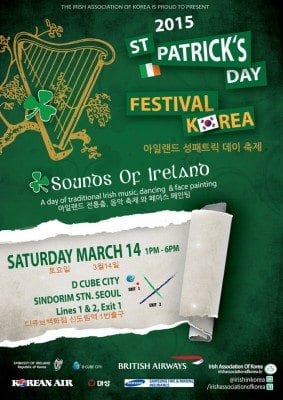
The Irish Association of Korea will be helping to celebrate St. Patrick’s Day with festivities on March 14th at D-Cube City in Sindorim from 1 pm to 6 pm. This years central theme is the “Sounds of Ireland” and will be filled with Irish dancing, Irish traditional music and audience participation.
On the day you will hear a variety of instruments like the Irish tin whistle, the fiddle, the accordion and even the Scottish bagpipes. You can watch a fusion of traditional and modern Irish dance performed by award winning Korean dancers, while also listening to the sounds of old style Irish singing and Irish influenced rock music. Additionally, there will be face painting, cultural entertainment, and the giveaway of two flights to Ireland via British Airways.
The event is free and will have a post-party event at Rocky Mountain Tavern in Itaewon with more music, drinks, and a fundraiser.
For more information on the IAK event, please visit their Facebook page or send an email to: irishassociationkorea@gmail.com
2015 Jeju Fire Festival
Words by Dave Cunning
Shot by Eric Hevesy

In my home country of Canada, purposely-lit forest fires can cost you $1,000,000 in fines and imprisonment. In Jeju, there is an annual festival to light a fire, and the entire island is invited to attend and participate.
The Jeju Fire Festival attracts thousands of Jeju residents and tourists to the Saebyeol Oreum in Jeju City on the first full moon of the lunar calendar to pray for health, prosperity, and good harvest in the new year. During this event, the nearly 520 meters high oreum (small volcano) is lit ablaze – along with the rest of the mountainside. This is done to reenact the traditions of Jeju farmers from long ago, who would set fire to their mountainous grasslands and fields every year at this time to kill harmful bugs, encourage new grass growth for their grazing livestock, and burn away bad luck.
The three day festival is slated to run from March 5-8 (though the event’s dates have been known to change in past years to accommodate unfavorable weather conditions), and includes various activities throughout the weekend for spectators to take part in. Fireworks, concerts, contests, and traditional craft making all help round out the festival’s itinerary, and many food and drink vendors will be on hand as well.
The event is free to attend, and is open to all ages. The site is accessible by car, taxi, or bus. A free shuttle bus from various points on the island to the event is provided — strongly encouraged, as the event causes heavy traffic congestion every year. Spectators are also advised to dress warmly.
For more information, visit buriburi.go.kr
Family e-Sports Festival 2015
May 2 – 3
If you’re looking for a fun spring/summer time event to get the family out of the house into the fresh air, this definitely isn’t it. If you’re looking to spend a few hours playing games with your significant other and/or children while trying not to “rage quit,” welcome to the Family e-Sports Festival.
This show will feature six games for families, couples, and other reeling from Black day to try out. The six featured games will be FIFA Online 3, League of Legends, Hearthstone, Pokopang, Everyone Boong Boong Boong, and Wind Runner. All six games will feature family tournaments and game instruction times to teach anyone how to play. The main events are likely to be the tournaments which will pit individuals, couples, and families against one another to compete for a grand prize.
Each game will also feature events and prizes with giveaways for attendees. Whether it’s a highly rated player, extra Champions, or maybe that card you’ve been hunting through packs to find, it’s worth attending the event.
For anyone looking to take their eyes off the screen for an hour or two, there will also be a pro-gamer signing session with League of Legend gamers, a cosplay fashion show, and a concert featuring the highly suggestive dancing of AoA. Best of all, the event is free to everyone of all ages. And remember, the outdoors are way overrated.
World Cup Park. 12 pm – 8 pm. 02-737-371
2015 Rugby World Cup Charity Dinner in Seoul
As England gears up to host the 2015 Rugby World Cup, the Kiwi Chamber, British Chamber of Commerce in Korea, AustCham, South African Chamber of Commerce in Korea and Korea Rugby Union will be hosting a 2015 Rugby World Cup Charity Dinner on Tuesday May 19th with the support of DHL, Land Rover, and SOCIETE GENERALE.

This year, there will be two guest speakers: Graham Henry, the former coach of the world champion All Blacks from New Zealand, and Olympic gold medalist Chang Mi Ran.
Graham Henry is, of course, most well known for coaching the New Zealand All Blacks to the Rugby World Cup finals in 2011. The All Blacks went on to win against France with a score of 8-7. When he finally retired later that year, he had led the All Blacks to victories in five Tri Nations, three Grand Slams, and one Rugby World Cup.
The second speaker, Chang Mi-ran, is a world record holding Olympic weight lifter. She won the silver medal in the 2004 Summer Olympics by lifting over 600 lbs in competition. She went on to win the gold in the 2008 Summer Olympics in Beijing and break world records by lifting a combined weight of 326 kgs. She went on to win the gold at the 2010 Asian Games before retiring in 2013 to continue her education.
The reception will begin at 6:30 pm at the Grand Ballroom on the 5th floor of the JW Marriott Gangnam. Dinner will be a menu of inspired Australian cuisine complemented by wine from New Zealand.
There is still time for interested parties to RSVP by contacting marketing-@bcck.or.kr. Reservations for members of the Kiwi Chamber, BCCK, and South African Chamber of Commerce in Korea are W150,000 per person while non-members are W170,000.
2015 Suwon Information & Science Festival
This month, Suwon celebrates its 12th year of hosting the “Information & Science Festival.” Every year, the festival welcomes people of all ages to the exhibition of the latest ICT (information and communication technology) developments in South Korea. In this particular fair, there will be an “ICT convergence ideas competition” with a purpose of selecting creative and revolutionary ideas to regulate the economy and widen the job market. Best submissions will be entertained by Suwon to create a crowdsourcing platform for its city. In addition, the largest robot competition in Korea – the STEAM Cup – will be held at this festival. Anyone can enter through its website, and the winners of each category will be recognized by the mayor. For families visiting the festival, consider attending some of the following events: the Robot Show (11 am, 4 pm), the Science Magic Show (10 am, 1 pm), and the Arcade Games.
Suwon Sports Complex, Suwon. Friday (opening ceremony 3pm) & Saturday (closing ceremony 5pm). suwonesports.com, 02-855-3747
Galaxy Express 2015 Tour
MTV Iggy once described Seoul indie rockers Galaxy Express by saying, “With their amped energy and stage exhibitionism, they’re the best live act to come out of Korea since…well, maybe ever.” Winners of both “Musician of the Year” at the 2011 Korean Music Awards and “Best Rock Album” at the 2009 Korean Music Awards, this month will see the trio performing their infectious brand of psychedelic garage punk across the country as part of a 10-city tour.
The tour is in support of Galaxy Express’ fourth full-length album, “Walking on Empty,” that came out this past summer. The 10-song offering is filled with a wider array of sounds and comes across as a much more polished and mature offering than the act’s past output
“We took our time when making the album and I think because of that it has a more precise and deeper sound,” says guitarist Park Jonghyun. “I think the songs feel more simpler and relaxed too, which makes for a more comfortable listening experience,” says bassist Lee Juhyun. “We’re really happy with how the album came out.”





